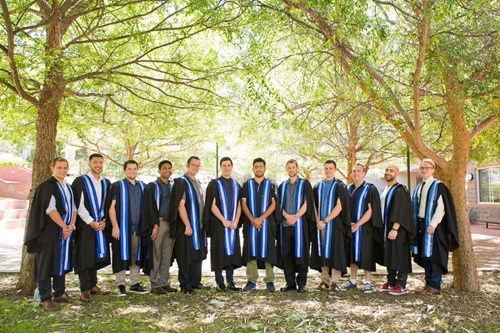Airservices technical trainees take flight
Twelve new Airservices technical trainees have graduated from an intense training program that has given them the skills to maintain Australia’s air navigation and surveillance equipment and keep our skies safe.
The two-year Diploma in Engineering – Electronics and Communications, at TAFE NSW Riverina Institute, has taught them about communications, surveillance, navigation aids and data systems. This training enables them to maintain Australia’s air traffic control equipment, from instrument landing systems, ground-based aids for satellite navigation, radars and other navigation aids.
Airservices Executive General Manager Projects and Engineering, Michelle Bennetts said the graduates will be working with state-of-the-art equipment and systems.
“Safety is paramount to everything we do at Airservices and our technical staff play a crucial role in helping to maintain safety-critical aviation equipment,” Ms Bennetts said.
“Field placements throughout their training has provided the trainees with vital practical experience and I congratulate them on their graduation and welcome them to Airservices.
“The 12 trainees will join more than 700 engineers and technical officers stationed around the country.”
The Alastair Hodgson Award is presented each year to the trainee who is most outstanding in terms of technical excellence and demonstration of organisational values. This year’s recipient was Sanjay Naicker, who will be taking a role in Brisbane.
Airservices General Manager Learning Academy, Linda Spurr said the partnership between Airservices and TAFE NSW Riverina Institute, since the first trainee intake in 2009, has seen over 80 graduates join Airservices workforce.
“Our partnership with the Institute provides an opportunity for young people and those with an interest in combining theoretical and practical learning to gain an industry-recognised qualification and be work-ready when they graduate,” Ms Spurr said.
“The skills they have learnt throughout the training are needed to ensure the future of Australia’s air navigation system and that we are in a position to manage future industry growth.”
The graduating trainees will take up roles in Brisbane, Launceston, Melbourne, Perth and Sydney.





.png)



.jpg)

Comments
There are no comments yet for this item
Join the discussion